33+ Business Continuity Plan Examples to Download
As the current state of the world has shown, many businesses can go through all sorts of situations that can put their daily operations to a halt. Whether you are a small business, a hospital, or a bank, you must have a strategy to continue your work no matter what happens. That is why a business continuity plan is essential to be a part of your company’s risk management planning procedures to ensure that you’ll know what to do should emergency and other disastrous scenarios occur.
33+ Business Continuity Plan Examples
1. Business Continuity Plan Template
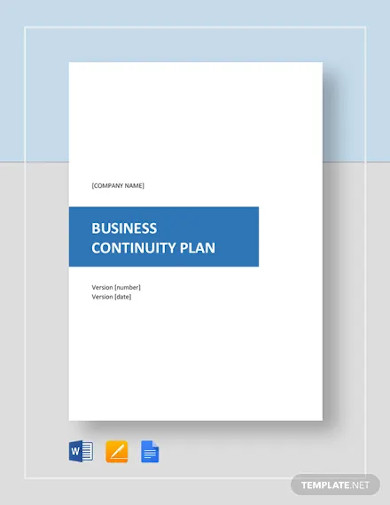
2. Work From Home Business Continuity Plan
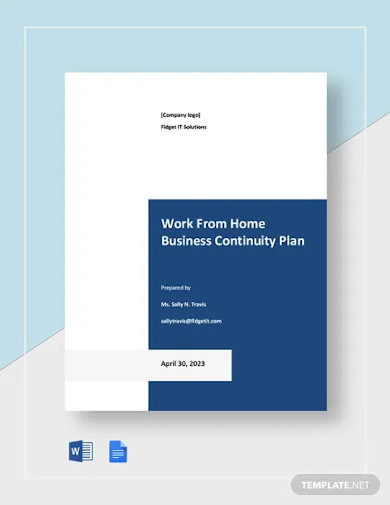
3. Business Continuity Plan Remote Work Template
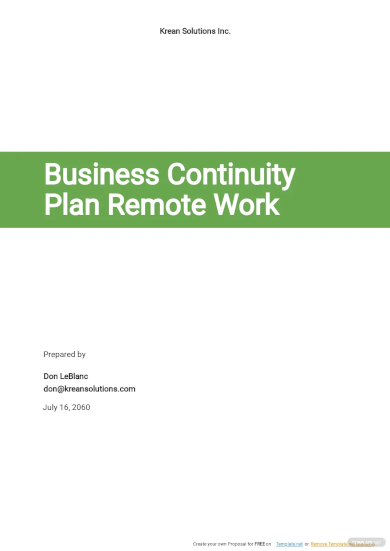
4. Service Business Continuity Plan Template
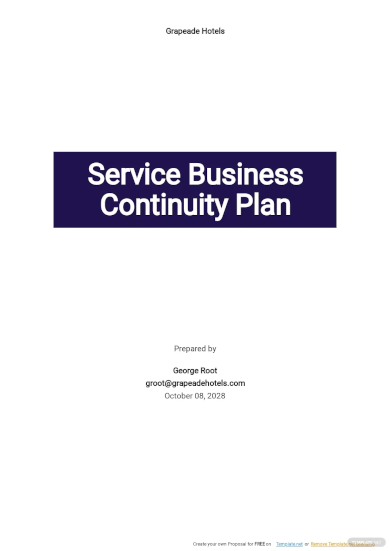
5. Team Business Continuity Plan Template
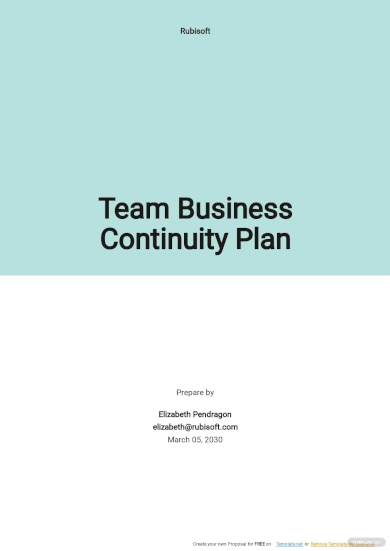
6. Pandemic Business Continuity Plan Template
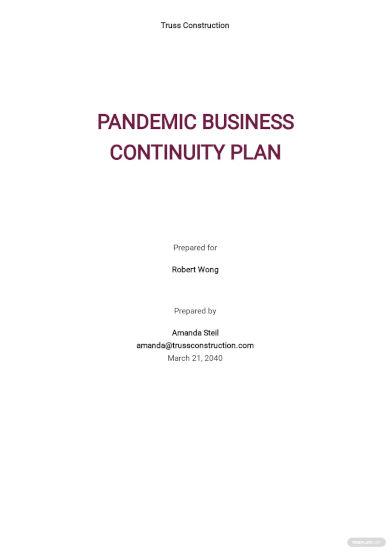
7. Manufacturing Business Continuity Plan Template
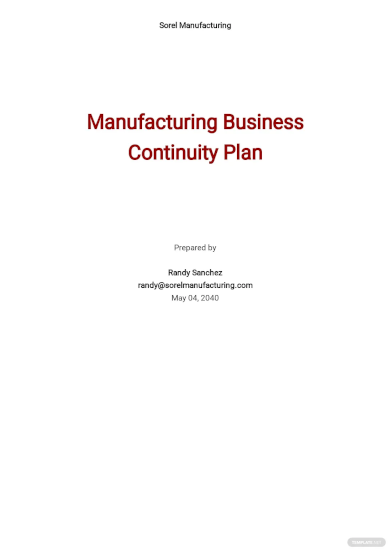
8. Construction Business Continuity Plan Template
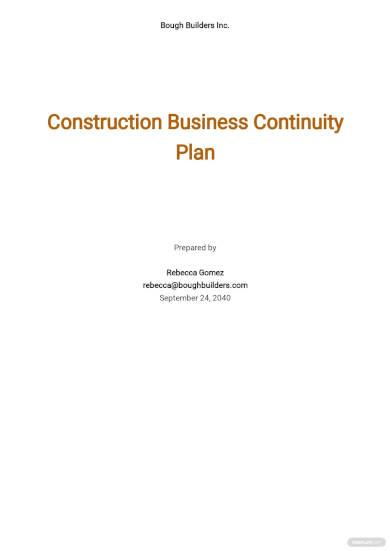
9. Corporate Business Continuity Plan Template
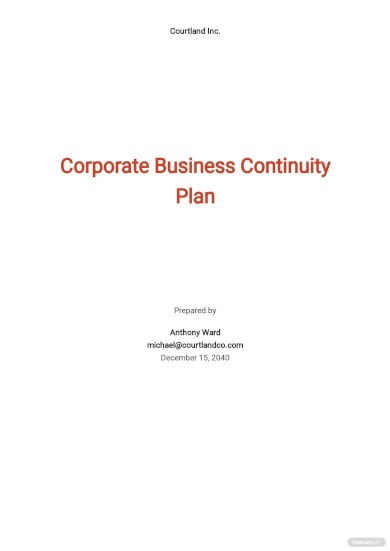
10. IT Business Continuity Plan Template
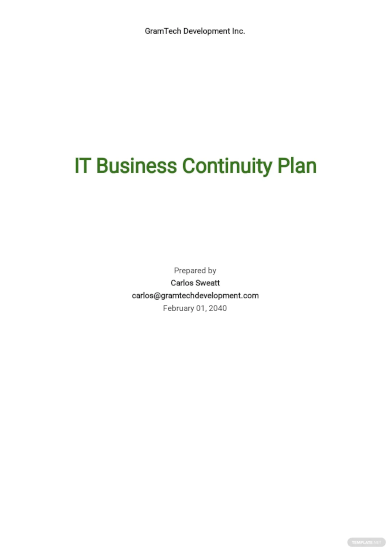
11. Nonprofit Business Continuity Plan Template
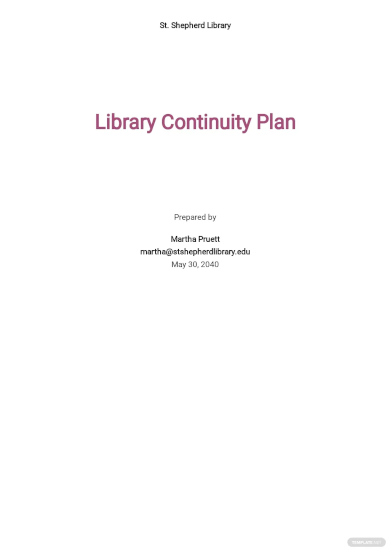
12. School Business Continuity Plan Template
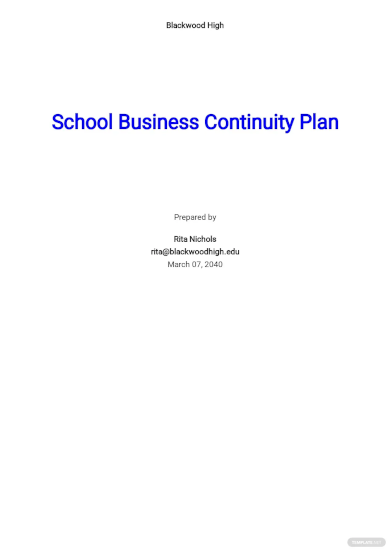
13. Small Business Continuity Plan Template
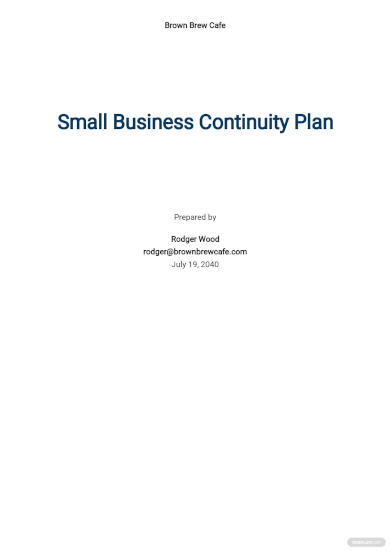
14. Service Desk Business Continuity Plan Template
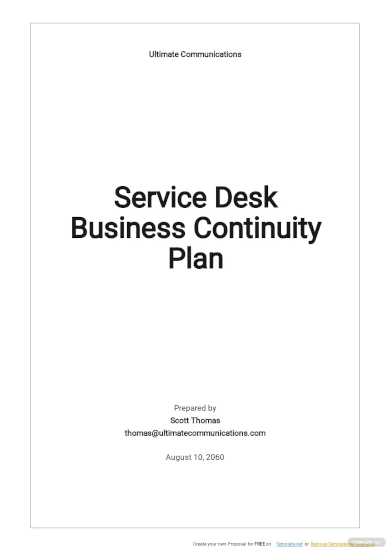
15. Small Firm Business Continuity Plan Template
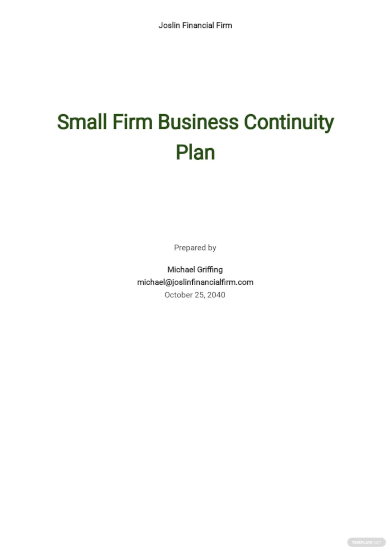
16. Supply Chain Business Continuity Plan Template
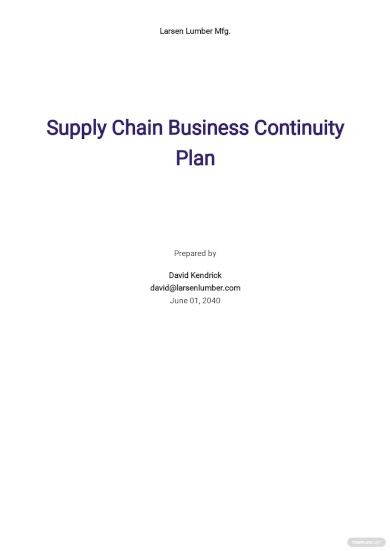
17. Disaster Recovery and Business Continuity Plan Template
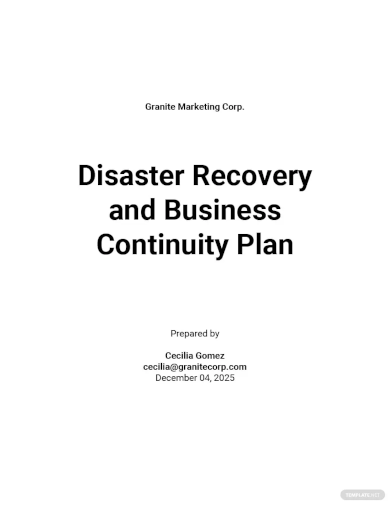
18. Business Continuity Activity Plan Template
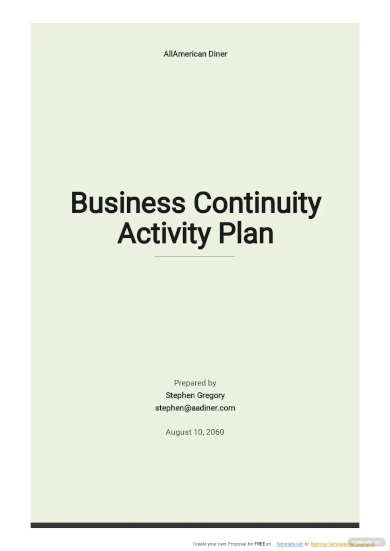
19. Business Continuity Action Plan Template
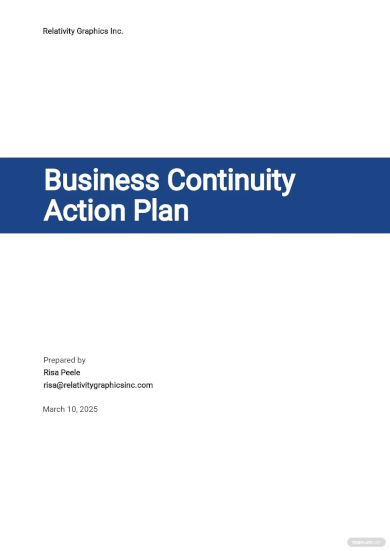
20. Business Continuity of Operations Plan Template
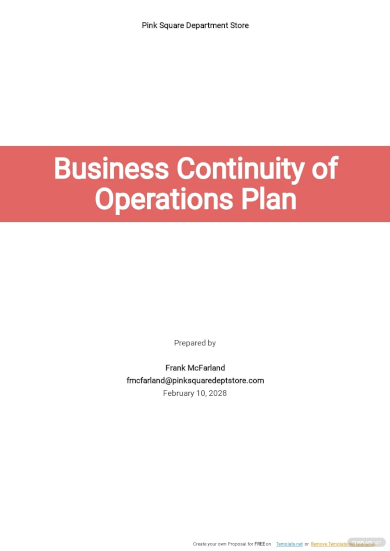
21. Small Business Continuity of Operations Plan Template
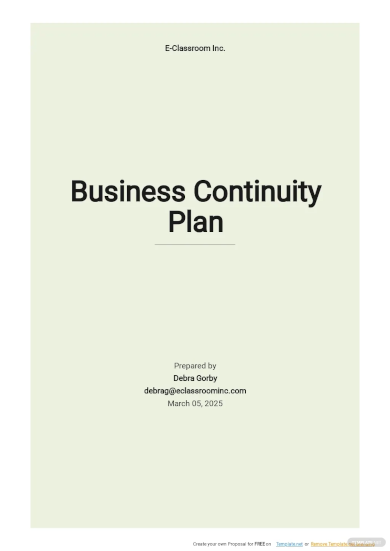
22. Business Continuity Management Plan Example
23. Departmental Business Continuity Plan Example
24. Business Continuity Plan Components and Sequencing Description Example
25. Standard Business Continuity Plan Example
26. Business Continuity Plan Format Example
27. Business Continuity Planning Handbook Example
28. Disaster Recovery and Business Continuity Planning Example
29. Detailed Business Continuity Plan Example
30. Business Continuity Plan for Small to Medium-Sized Businesses Example
31. Simple Business Continuity Plan Example
32. Business Continuity Plan Example
33. Business Continuity and Disaster Recovery Plan Example
34. Business Continuity Planning Example
What is a Business Continuity Plan?
A business continuity plan is an initiative to make a system of preventing and recovering from threats to the company. It involves procedures that ensure employees‘ security and allow them to continue doing their work despite disastrous events and other unfavorable circumstances. The goal of these plans is to prevent business operations from stopping completely and allowing them to recover once the situation ends.
How to Draft a Business Continuity Plan
As mentioned in this article by Forbes, having a business continuity plan can ease the pressure on everyone. If you don’t have one planned, you must develop one in case another crisis unfolds. Here are a few ways on how you can plot the development of your business continuity plan.
1. Consider All the Risks
Think of every situation and a disastrous event that could negatively affect your business operation. Do a risk assessment for each of them to see if it will be safe for everyone to continue work during those times. If the testing indicates that it is safe to carry on, then make plans to circumvent these issues.
2. Go Online
Today’s great thing is that information technology allows us to carry out work from a convenient location when making your business continuity plan to look into what work is feasible to do online. That way, your business operation can have a smooth transition and make it convenient for everybody. Emails, video calls, and other online tools have proven quite effective for a lot of jobs, especially now.
3. Make It Comprehensive
Your business continuity plan should have a guide that will allow any person to understand how to execute the plan. There should also be instructions that are easily understandable to ensure that business continuity is all set. That way, all tactics and strategies integrate into every business continuity step accordingly.
4. Get Everyone’s Input
Ensure that the business continuity plan is a document created out of collaborative efforts. You have to make particular entities and employees involved so that you can adequately identify the items that can contribute to the business’s threats and the risks that you need to face.
FAQ’s
What does a business continuity policy mean?
It is the set of guidelines and standards that ensures proper risk management and resilience for an organization upon its implementation. A well-written one will give the company realistic expectations on the business process and recovery from disaster.
What does business impact analysis refer to?
In a business continuity plan, this refers to the first steps in making your company’s business continuity policy by considering the impact of each disaster and risk events that your company may encounter.
What makes a business continuity plan differ from a disaster recovery plan?
The difference between the two is when the plan takes effect. A disaster recovery plan focuses on the response after something happened and how to recover from it. In contrast, a business continuity plan focuses on how to stay operational during an event and its aftermath.
Knowing what to do for risk prevention and functional recovery can make it easier for businesses to execute contingency plans properly and follow workplace precautions. You have to make sure that you will only put necessary, relevant, and useful details in the business continuity plan to help the business regain its normal operations after the crisis finally ends.
33+ Business Continuity Plan Examples to Download

As the current state of the world has shown, many businesses can go through all sorts of situations that can put their daily operations to a halt. Whether you are a small business, a hospital, or a bank, you must have a strategy to continue your work no matter what happens. That is why a business continuity plan is essential to be a part of your company’s risk management planning procedures to ensure that you’ll know what to do should emergency and other disastrous scenarios occur.
33+ Business Continuity Plan Examples
1. Business Continuity Plan Template

Details
File Format
MS Word
Pages
Google Docs
Size: A4 & US
2. Work From Home Business Continuity Plan

Details
File Format
MS Word
Google Docs
Size: US
3. Business Continuity Plan Remote Work Template

Details
File Format
MS Word
Google Docs
Apple Pages
PDF
Size: 36 KB
4. Service Business Continuity Plan Template

Details
File Format
MS Word
Google Docs
Apple Pages
PDF
Size: 33 KB
5. Team Business Continuity Plan Template

Details
File Format
MS Word
Google Docs
Apple Pages
PDF
Size: 31 KB
6. Pandemic Business Continuity Plan Template

Details
File Format
MS Word
Google Docs
Apple Pages
PDF
Size: 27 KB
7. Manufacturing Business Continuity Plan Template

Details
File Format
MS Word
Google Docs
Apple Pages
PDF
Size: 25 KB
8. Construction Business Continuity Plan Template

Details
File Format
MS Word
Google Docs
Apple Pages
PDF
Size: 25 KB
9. Corporate Business Continuity Plan Template

Details
File Format
MS Word
Google Docs
Apple Pages
PDF
Size: 23 KB
10. IT Business Continuity Plan Template

Details
File Format
MS Word
Google Docs
Apple Pages
PDF
Size: 21 KB
11. Nonprofit Business Continuity Plan Template

Details
File Format
MS Word
Google Docs
Apple Pages
PDF
Size: 18 KB
12. School Business Continuity Plan Template

Details
File Format
MS Word
Google Docs
Apple Pages
PDF
Size: 22 KB
13. Small Business Continuity Plan Template

Details
File Format
MS Word
Google Docs
Apple Pages
PDF
Size: 21 KB
14. Service Desk Business Continuity Plan Template

Details
File Format
MS Word
Google Docs
Apple Pages
PDF
Size: 30 KB
15. Small Firm Business Continuity Plan Template

Details
File Format
MS Word
Google Docs
Apple Pages
PDF
Size: 23 KB
16. Supply Chain Business Continuity Plan Template

Details
File Format
MS Word
Google Docs
Apple Pages
PDF
Size: 23 KB
17. Disaster Recovery and Business Continuity Plan Template

Details
File Format
MS Word
Google Docs
Apple Pages
PDF
Size: 32 KB
18. Business Continuity Activity Plan Template

Details
File Format
MS Word
Google Docs
Apple Pages
PDF
Size: 34 KB
19. Business Continuity Action Plan Template

Details
File Format
MS Word
Google Docs
Apple Pages
PDF
Size: 31 KB
20. Business Continuity of Operations Plan Template

Details
File Format
MS Word
Google Docs
Apple Pages
PDF
Size: 39 KB
21. Small Business Continuity of Operations Plan Template

Details
File Format
MS Word
Google Docs
Apple Pages
PDF
Size: 30 KB
22. Business Continuity Management Plan Example
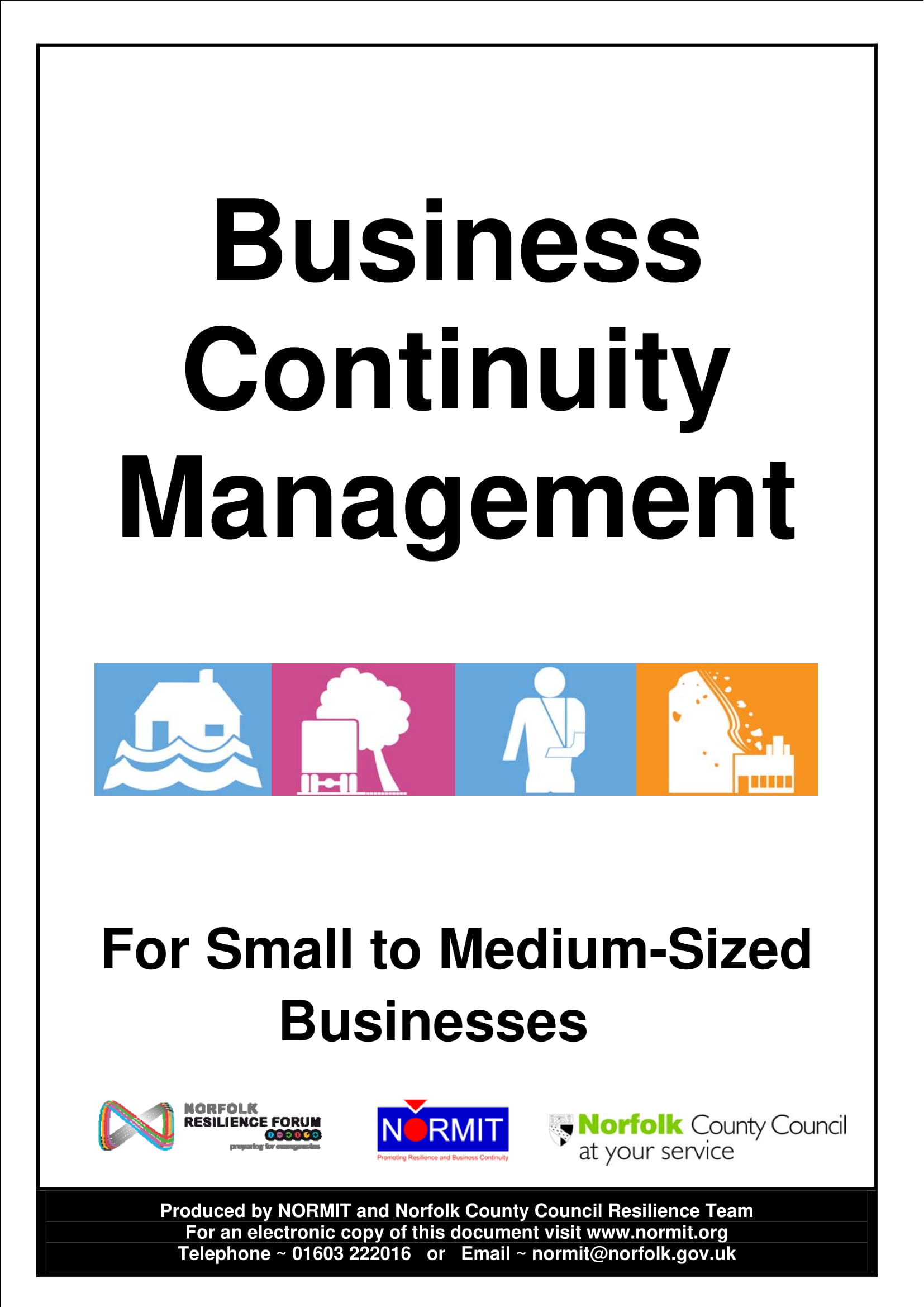
norfolksafety.org
Details
File Format
PDF
Size: 200 KB
23. Departmental Business Continuity Plan Example
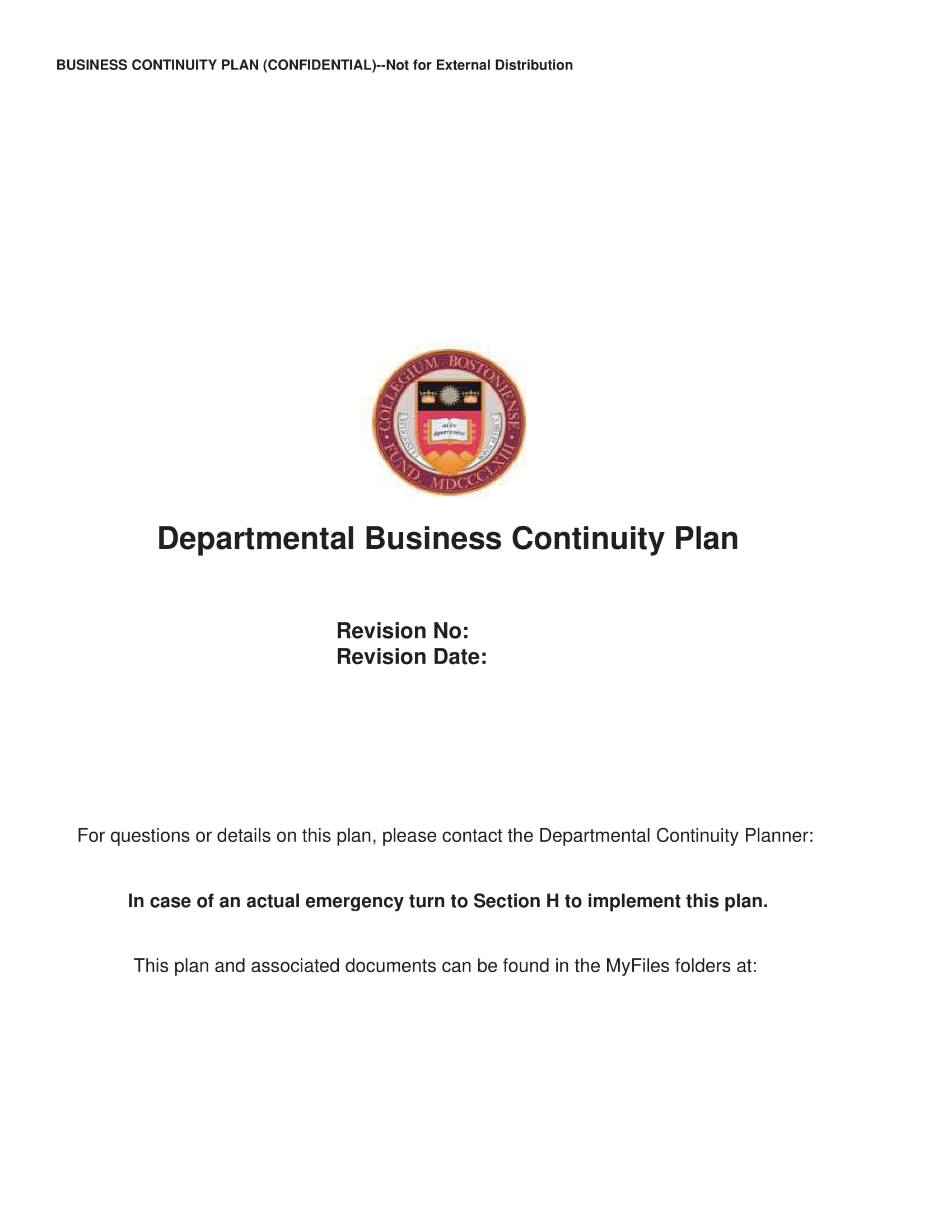
bc.edu
Details
File Format
PDF
Size: 69 KB
24. Business Continuity Plan Components and Sequencing Description Example
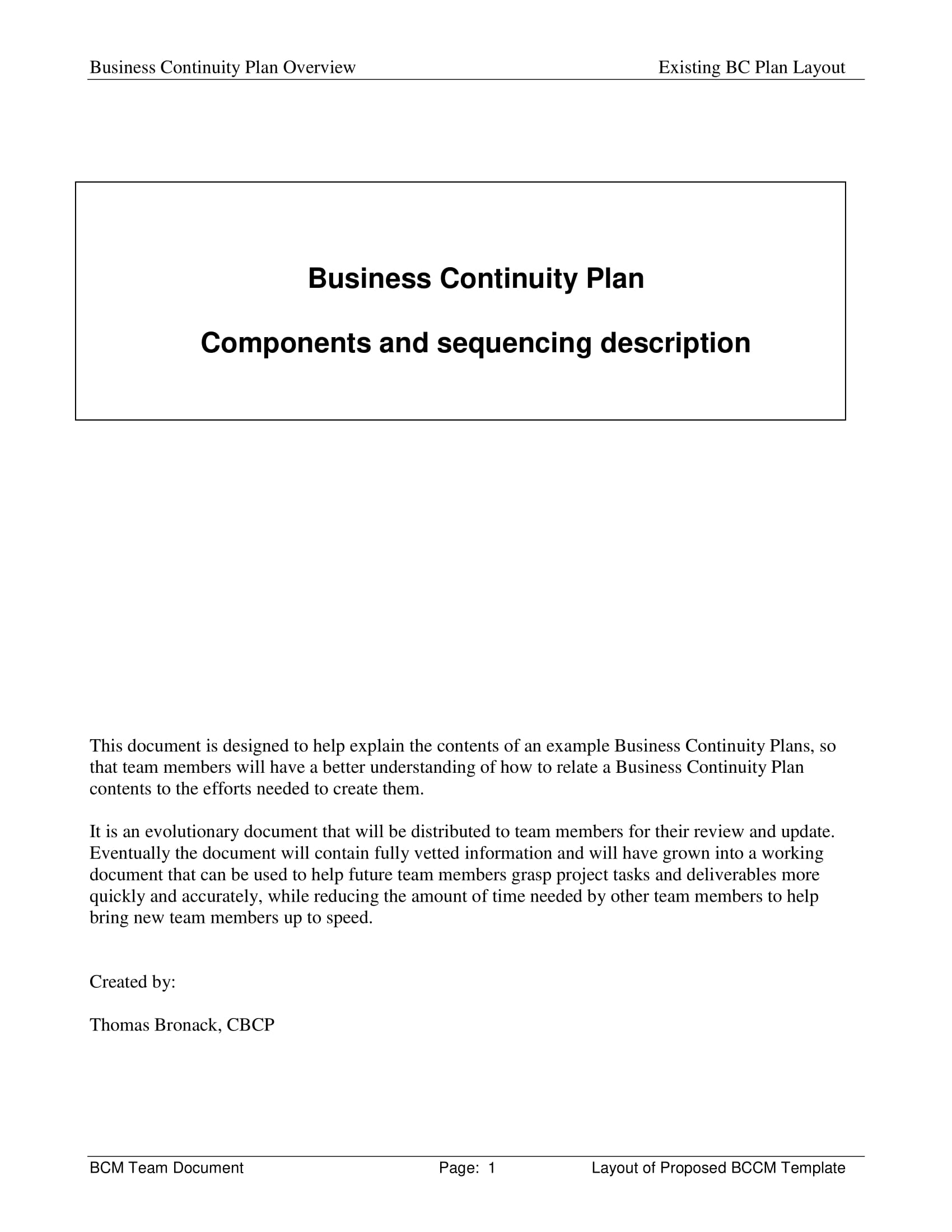
dcag.com
Details
File Format
PDF
Size: 1 MB
25. Standard Business Continuity Plan Example
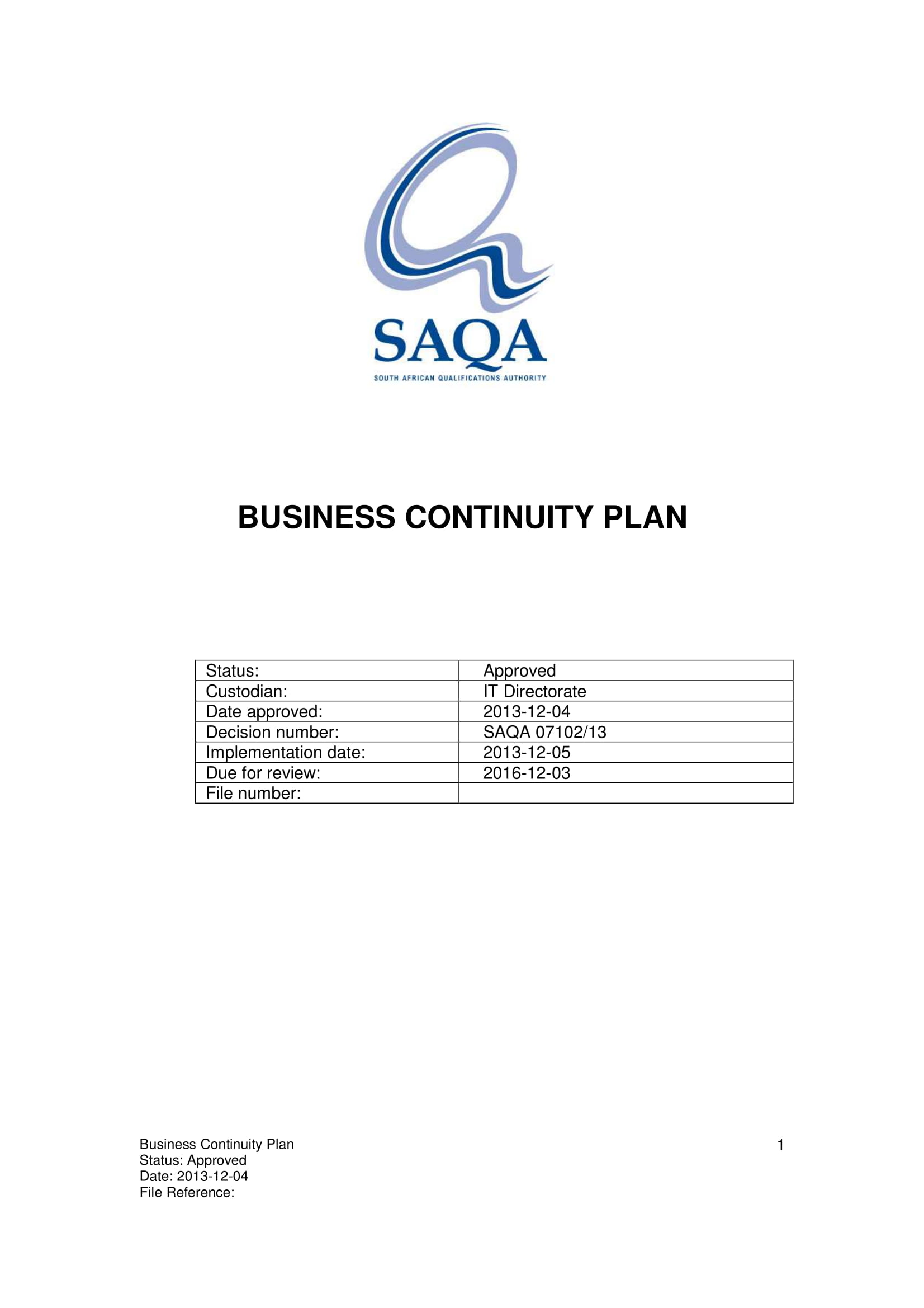
saqa.org.za
Details
File Format
PDF
Size: 108 KB
26. Business Continuity Plan Format Example
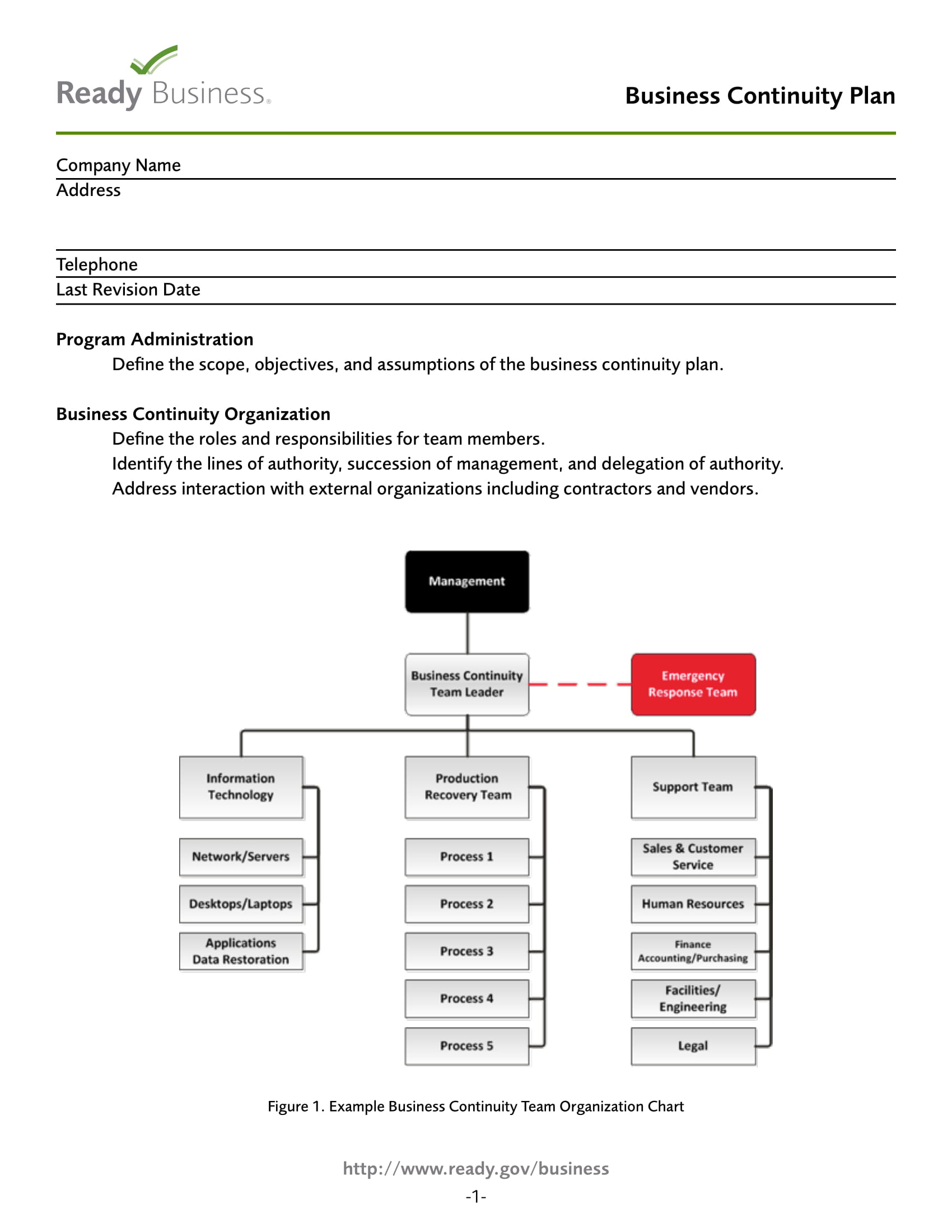
fema.gov
Details
File Format
PDF
Size: 82 KB
27. Business Continuity Planning Handbook Example

cambridge.gov.uk
Details
File Format
PDF
Size: 2 MB
28. Disaster Recovery and Business Continuity Planning Example
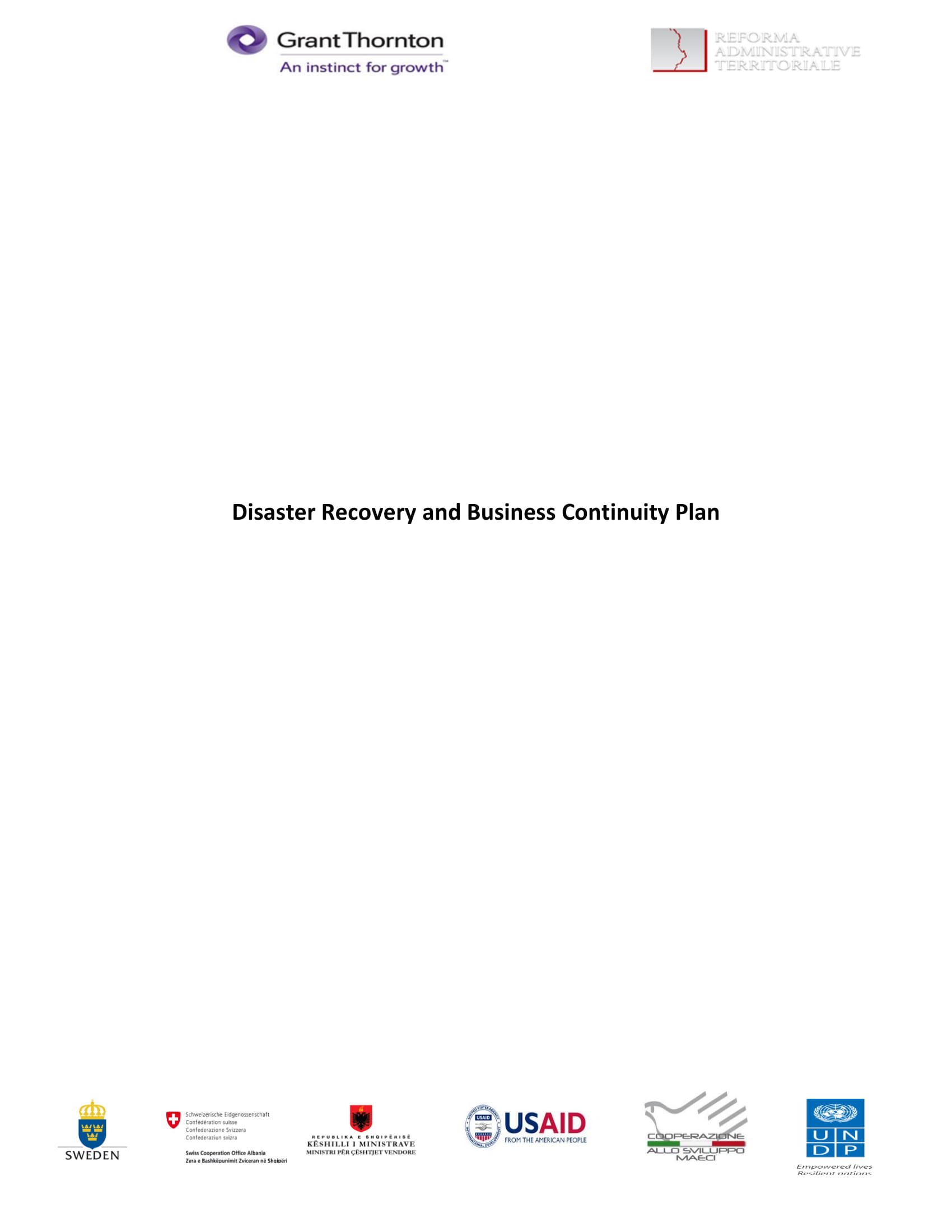
al.undp.org
Details
File Format
PDF
Size: 675 KB
29. Detailed Business Continuity Plan Example
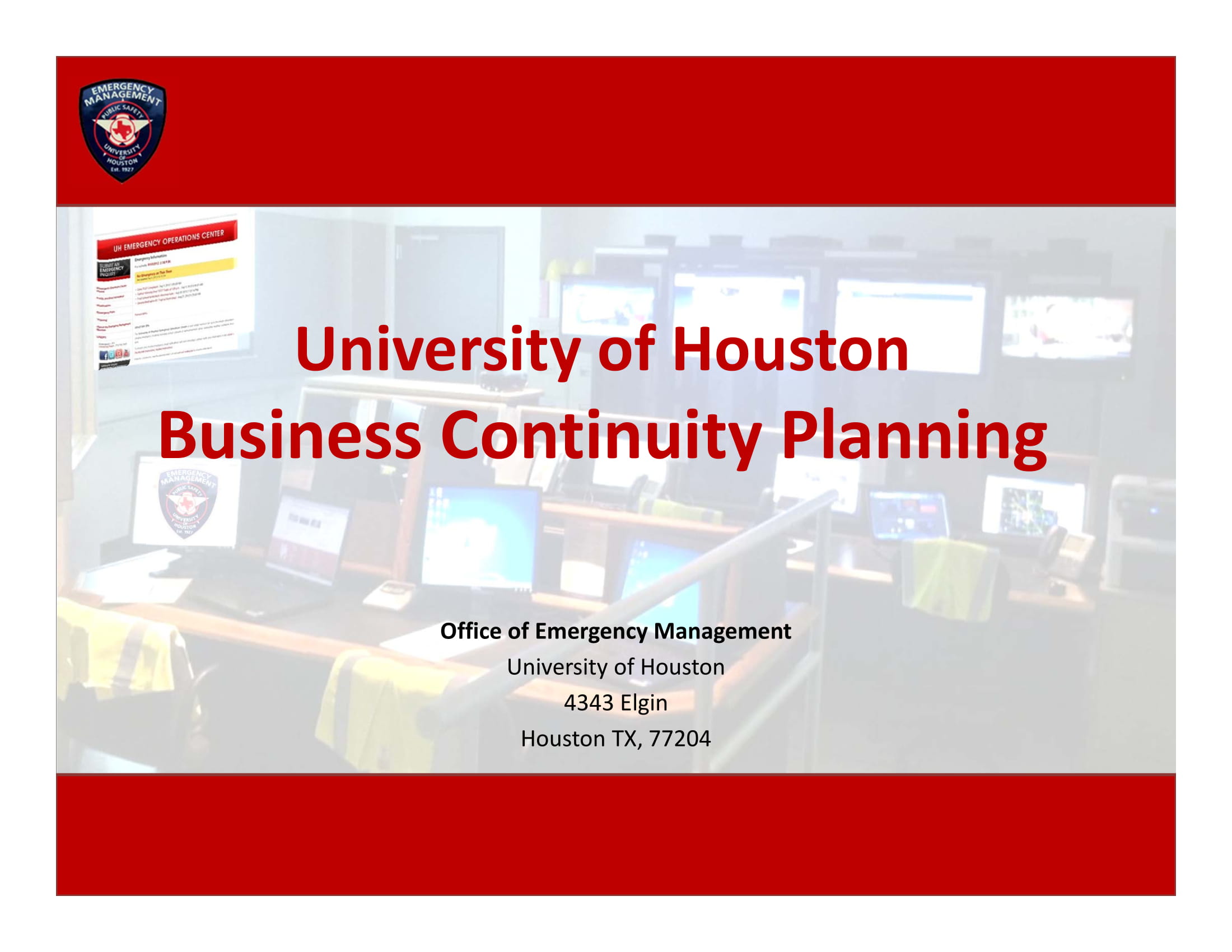
uh.edu
Details
File Format
PDF
Size: 671 KB
30. Business Continuity Plan for Small to Medium-Sized Businesses Example
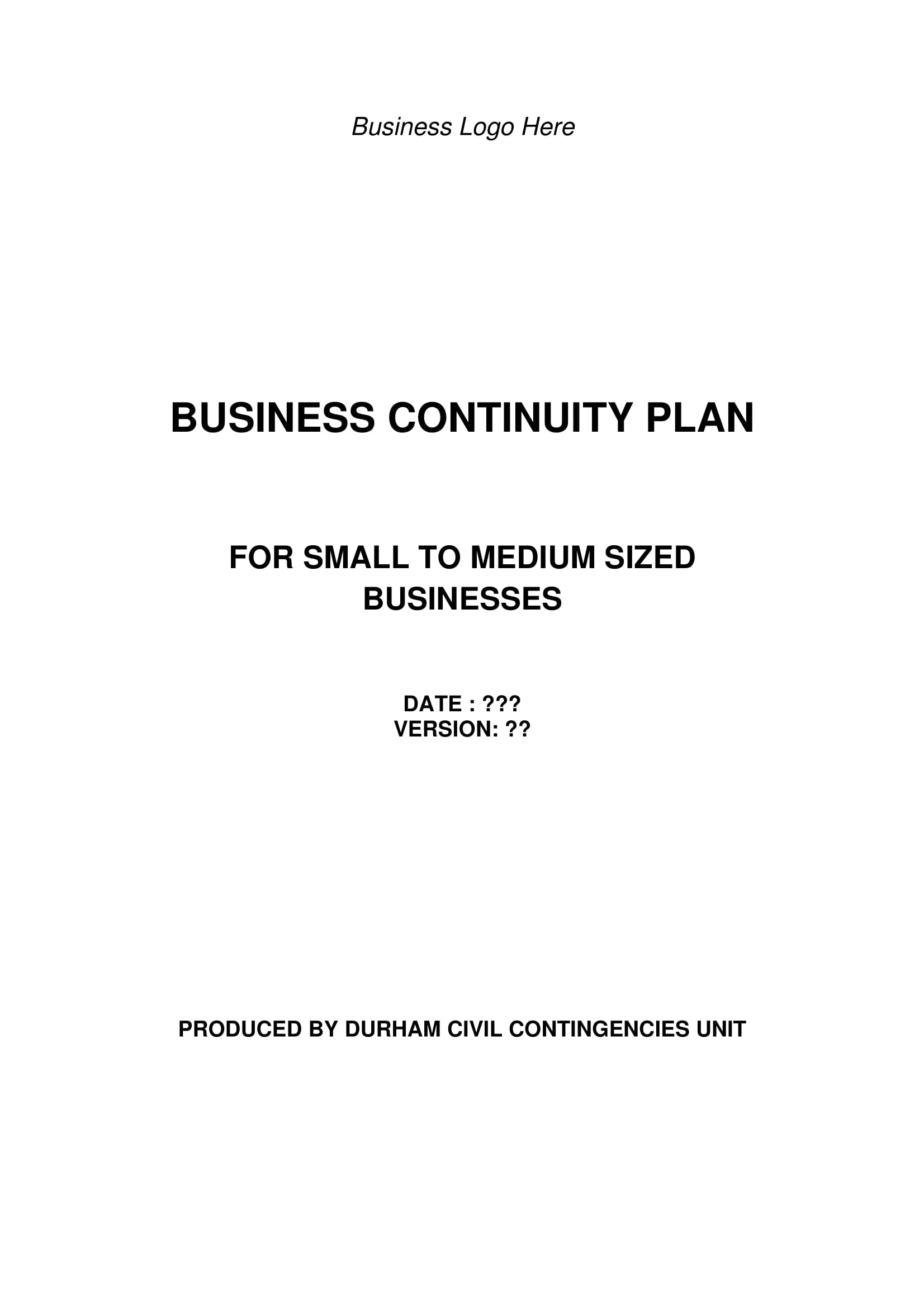
durham.gov.uk
Details
File Format
PDF
Size: 100 KB
31. Simple Business Continuity Plan Example
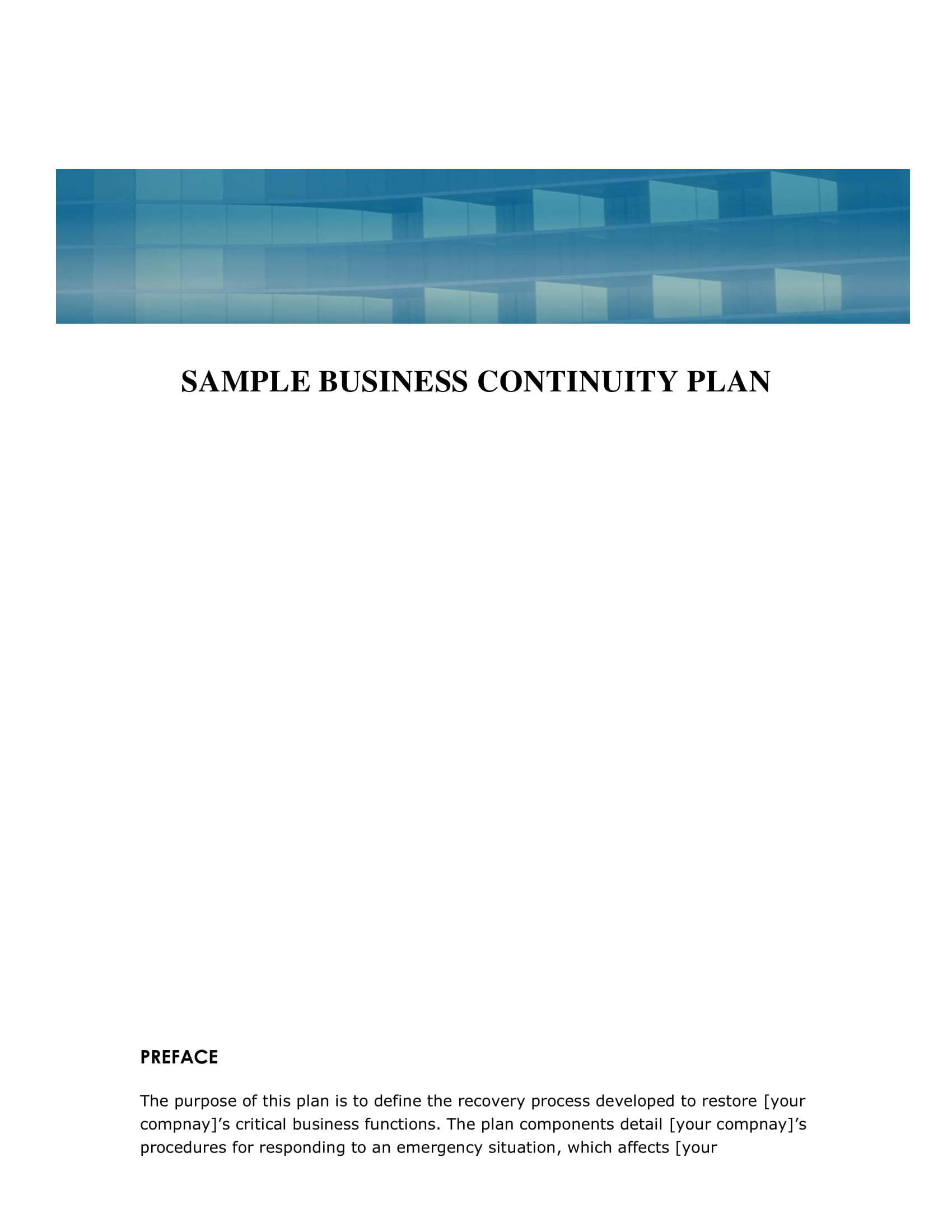
kapnick.com
Details
File Format
PDF
Size: 379 KB
32. Business Continuity Plan Example
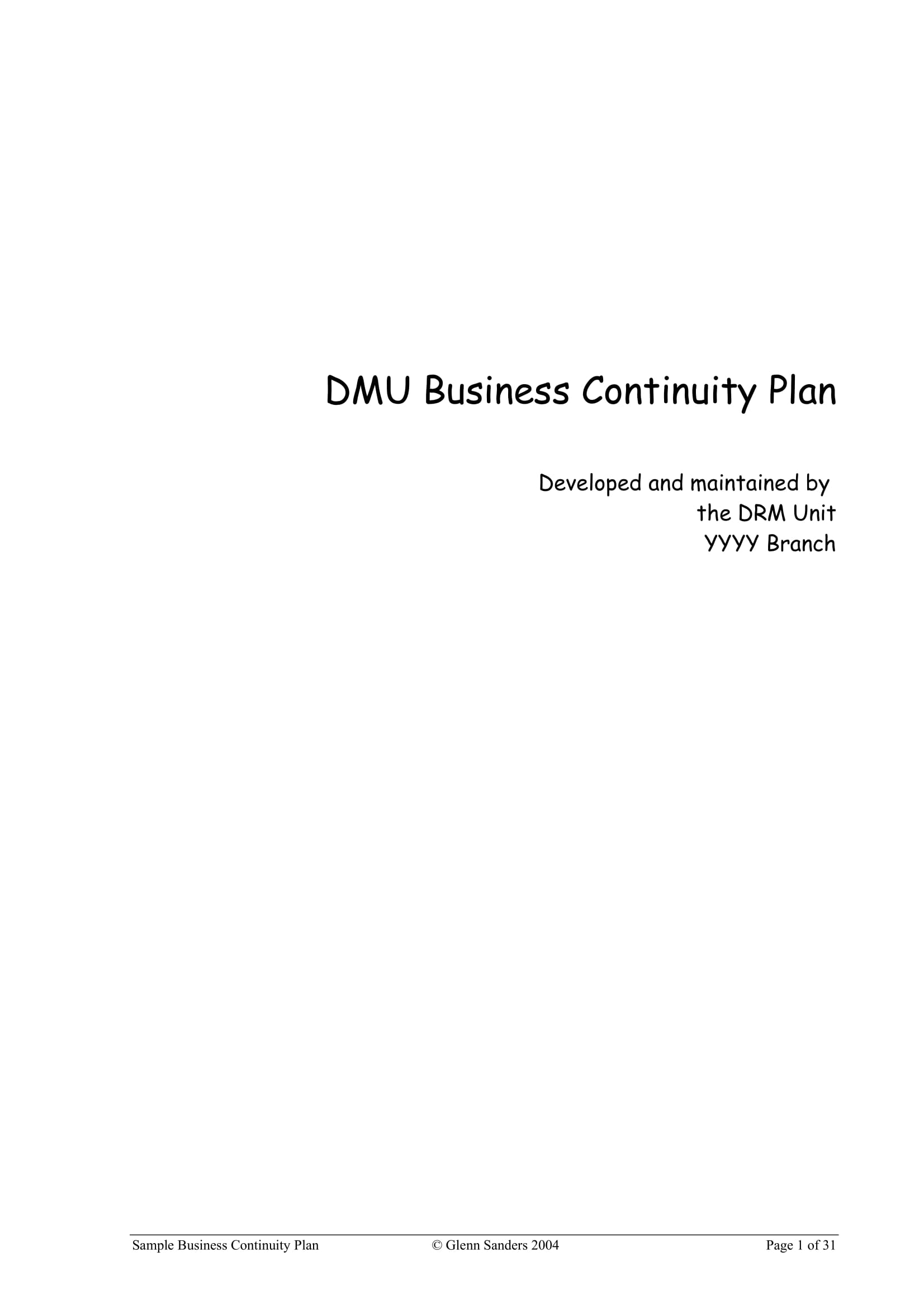
rimpa.com.au
Details
File Format
PDF
Size: 285 KB
33. Business Continuity and Disaster Recovery Plan Example
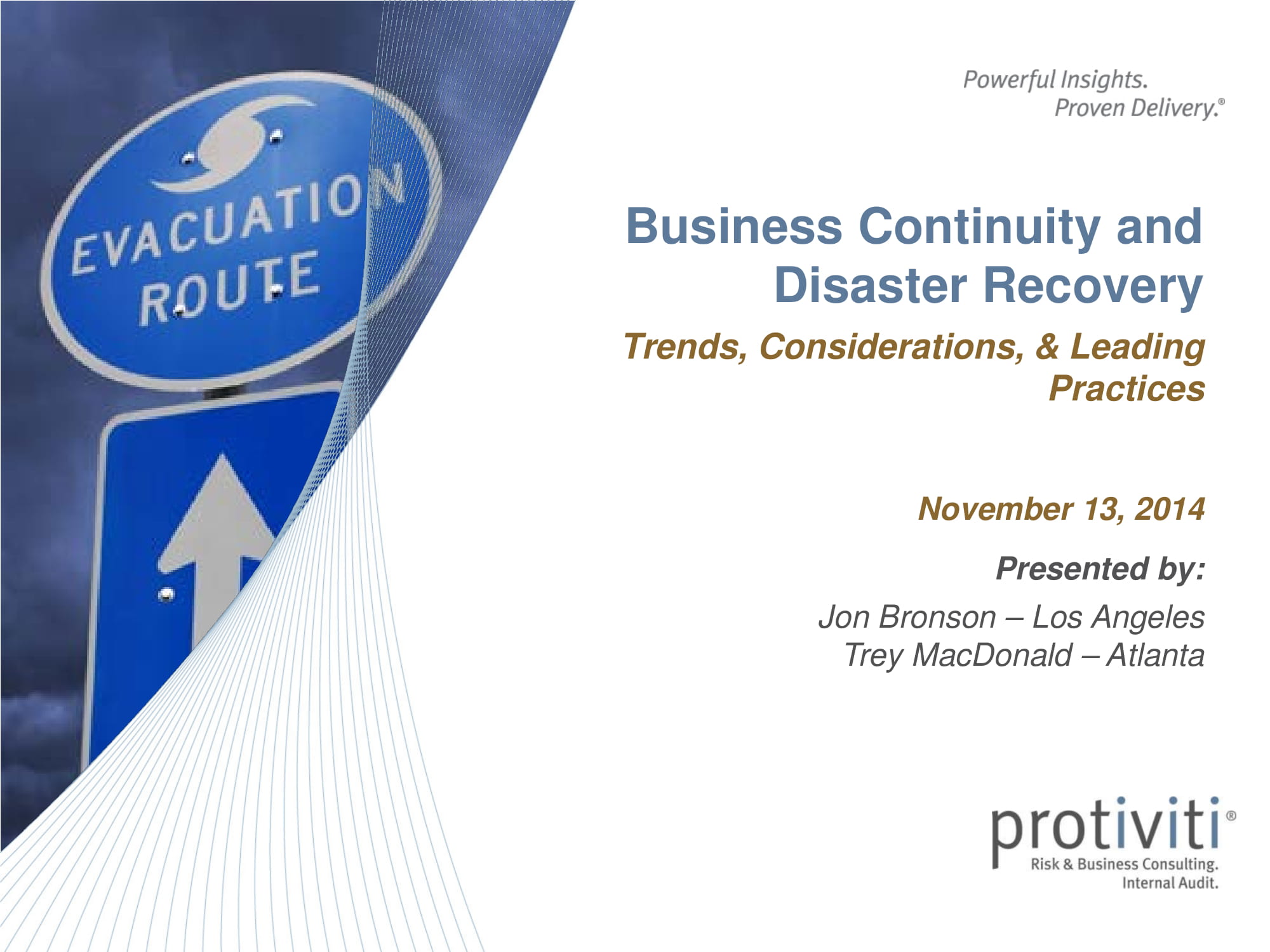
ucop.edu
Details
File Format
PDF
Size: 244 KB
34. Business Continuity Planning Example

mackay.qld.gov.au
Details
File Format
PDF
Size: 236 KB
What is a Business Continuity Plan?
A business continuity plan is an initiative to make a system of preventing and recovering from threats to the company. It involves procedures that ensure employees‘ security and allow them to continue doing their work despite disastrous events and other unfavorable circumstances. The goal of these plans is to prevent business operations from stopping completely and allowing them to recover once the situation ends.
How to Draft a Business Continuity Plan
As mentioned in this article by Forbes, having a business continuity plan can ease the pressure on everyone. If you don’t have one planned, you must develop one in case another crisis unfolds. Here are a few ways on how you can plot the development of your business continuity plan.
1. Consider All the Risks
Think of every situation and a disastrous event that could negatively affect your business operation. Do a risk assessment for each of them to see if it will be safe for everyone to continue work during those times. If the testing indicates that it is safe to carry on, then make plans to circumvent these issues.
2. Go Online
Today’s great thing is that information technology allows us to carry out work from a convenient location when making your business continuity plan to look into what work is feasible to do online. That way, your business operation can have a smooth transition and make it convenient for everybody. Emails, video calls, and other online tools have proven quite effective for a lot of jobs, especially now.
3. Make It Comprehensive
Your business continuity plan should have a guide that will allow any person to understand how to execute the plan. There should also be instructions that are easily understandable to ensure that business continuity is all set. That way, all tactics and strategies integrate into every business continuity step accordingly.
4. Get Everyone’s Input
Ensure that the business continuity plan is a document created out of collaborative efforts. You have to make particular entities and employees involved so that you can adequately identify the items that can contribute to the business’s threats and the risks that you need to face.
FAQ’s
What does a business continuity policy mean?
It is the set of guidelines and standards that ensures proper risk management and resilience for an organization upon its implementation. A well-written one will give the company realistic expectations on the business process and recovery from disaster.
What does business impact analysis refer to?
In a business continuity plan, this refers to the first steps in making your company’s business continuity policy by considering the impact of each disaster and risk events that your company may encounter.
What makes a business continuity plan differ from a disaster recovery plan?
The difference between the two is when the plan takes effect. A disaster recovery plan focuses on the response after something happened and how to recover from it. In contrast, a business continuity plan focuses on how to stay operational during an event and its aftermath.
Knowing what to do for risk prevention and functional recovery can make it easier for businesses to execute contingency plans properly and follow workplace precautions. You have to make sure that you will only put necessary, relevant, and useful details in the business continuity plan to help the business regain its normal operations after the crisis finally ends.

